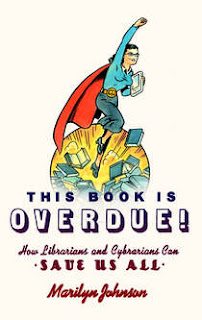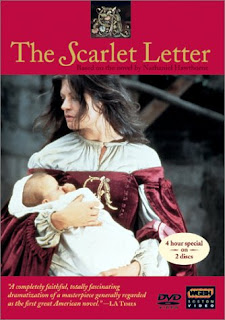About the Book
Personal Finance is a comprehensive book that provides all the necessary skills and knowledge a young adult needs to know about smart money management, and necessary life decisions involving money and expenses. This book is presented in an orderly and logical fashion, in an effort to bring financial literacy to many learning levels. It meets all personal finance voluntary national standards set out by the Jump$tart Coalition, and correlates to the financial literacy standards of many states. It is also a great addition to an Economics course that needs to meet financial literacy requirements, as a textbook for a Consumer Economics class, or as an addition to an introductory Business/Entrepreneurship course.
Personal Finance is made up of six chapters, a Glossary, Internet Resources, and an Index. Each chapter covers basic personal finance knowledge, from creating a budget, finding a job and thinking about a career, to using credit and loans, understanding insurance, and discussing financial investments and how they work.
Blog: Amsco Extra! (Login to Add to MyJacketFlap)
JacketFlap tags: History, Economics, Comics, Blogs, Political Science, Culture, American History, Social Studies, AP US History, Government, Internet Resources, Add a tag
 History has always intrigued me. I hear a legend of Alexander the Great, and I want to go find a book on ancient Greece and Macedon in the 300s B.C. My university offers a class on the great thinkers of the 1960s? Sign me up! A woman writes a blog about the history of candy? Awesome, put it on my RSS feed.
History has always intrigued me. I hear a legend of Alexander the Great, and I want to go find a book on ancient Greece and Macedon in the 300s B.C. My university offers a class on the great thinkers of the 1960s? Sign me up! A woman writes a blog about the history of candy? Awesome, put it on my RSS feed.I think history intrigues me for two reasons: both what happened, and what people decipher as what happened. I want to understand the significant, and why it was deemed so.
Often the concepts of social memory and cultural reality are left out in basic history studies; there are just too many years to squeeze into a lesson for this sort of discussion to fit.
What am I talking about? Here is an example: For me, it happened while I was an undergraduate in economics. I took this offbeat history course, called “History of the Marriage Crisis in Egypt,” in order to fulfill a strange liberal arts requirement. It was a class that looked at Egyptian history through the eyes of those in the time period.
It seems that modern Egypt has suffered a marriage crisis on and off for the last century; as the press, books, and the population would attest to. But the marriage and divorce rates had stayed almost constant throughout this time period. So where was this “crisis” coming from? As my professor taught the course, it became apparent that the marriage crisis would erupt during times of economic hardship and political upheaval. It was common in all forms of social discussion. The book my professor wrote argued that the marriage crisis was a lens, a form of communication, how people could view and voice their concerns through a different medium than, say, politics or poverty.
That was one class I took. But it spurred an interes
Blog: Amsco Extra! (Login to Add to MyJacketFlap)
JacketFlap tags: Internet Resources, Vacation, Add a tag
I never liked school. Although I was smart and had very good grades, I — and every other kid in my class (at least the boys) — had no use for it. Playing and watching TV all day during the summer break, that was the high life. I always dreaded the back-to-school commercials on TV and the radio: cruel reminders that summer vacation was almost over. My parents knew how much I disliked those ads, so whenever one played, they were always around to laugh it up.
As I grew older, things didn’t get easier. While on vacation, I would hit the beach, go to the mountains, or just sleep late and try to avoid doing chores. Everything was fine for the first weeks, but as time passed, I would count down the days left and, there it was, time again for the back-to-school sales . . . and my anxiety.
Oddly enough, I ended up teaching in high school for two years and that “back-to-school” anxiety was still there. What was it? It couldn’t be the “resistance to learning” anymore, since I was now the teacher.
Was it the work, itself?
Recently, a friend from 0 Comments on You May as Well Face It: It’s Time to Go Back to School! as of 1/1/1900
Blog: Amsco Extra! (Login to Add to MyJacketFlap)
JacketFlap tags: Internet Resources, Accessiblity, Reading, Technology, Dogs, Blogs, Careers, Humor, Research, Add a tag
 During last week, which was National Library Week, I got to thinking about a book I had read recently about libraries and librarians. It was Marilyn Johnson’s This Book Is Overdue! How Librarians and Cybrarians Can Save Us All.
During last week, which was National Library Week, I got to thinking about a book I had read recently about libraries and librarians. It was Marilyn Johnson’s This Book Is Overdue! How Librarians and Cybrarians Can Save Us All.Witty and Provocative. Who would have thought that a book about libraries could be both thought-provoking and funny? I must admit that I had expected the book to be humorous since I have met the author (www.marilynjohnson.net) several times, and she is hilarious in person. I have also read her only other published book, The Dead Beat: Lost Souls, Lucky Stiffs, and the Perverse Pleasures of Obituaries, a witty take on writing obituaries.
Are Librarians Obsolete? Ms. Johnson has often been asked if librarians are obsolete in the Age of Google. Her answer is “Are you kidding? Librarians are more important than ever.” She points out that there are many people who do not have computers, do not know how to do research on the Internet, and do not know how to compose and send e-mails. When they show up at the library, they have to be taught how to do those things. Most librarians are busy keeping up with changing technologies so they can at least be a step ahead of their patrons. Some librarians are way ahead of others, thus the author’s use of the term cybrarians in the subtitle to her book.
Websites. The author shows how many of the Web sites that we use or should use when we go on the Internet are library related. WorldCat.org (www.worldcat.org) connects to more than 10,000 libraries worldwide. It tells you which libraries have which books. The New York Public Library (www.nypl.org) Web site is humongous. The British Li
Blog: Amsco Extra! (Login to Add to MyJacketFlap)
JacketFlap tags: Technology, Research, Internet Resources, Add a tag

When I was in grade school in the mid-1990s, the Internet was still very new, Google didn’t exist yet and Yahoo was the go-to search engine. My ideas about the Web and search engines in general were malformed. I had an image of Yahoo as a person; specifically, a wise old man with a long, white beard who knew all the answers.
Where did this image come from? Perhaps in addition to being seriously uneducated about the Web, I also lacked a creative mindset. That was simply what I thought. You typed your question and out came the answer from “the man behind the curtain,” or in my case, the man behind the screen.
That was the ’90s. Fortunately, I’ve since gained a better understanding of the Web, how search engines function and how to evaluate a source. But are students today any more search-savvy than I was then?
At Dulcinea Media, we realize that students need guidance to develop effective Web research skills (see the results of our survey of more than 300 middle school and high school students’ online search habits). And we believe that empowering teachers and students by providing them with Web tools designed specifically for them is a good first step in developing those skills.

We were so pleased with SweetSearch that we developed its sister site, SweetSearch Biographies. SweetSearch Biographies is a collection of more than 1,000 profiles of significant people from many walks of life, professions and countries, spanning many centuries. Using search filters, students can easily find intriguing people by profession, country of origin and gender.
Tired of assigning biographies to students, only to receive papers on the same five people? SweetSearch Biographies makes it easy for students to uncover the gems—the noteworthy people from history who maybe didn’t make it into the history books.
But providing students with search tools and search results that have been thoroughly evaluated by our staff wasn’t enough. We also wanted to help students learn to find quality Web sources themselves. Our How to Write a Biography Web Guide offers students expert tips on writing and researching a biography, including how to uncover hard-to-find interviews and obituaries.
I wish that I had been better informed as a student about how online search worked. I wish I’d asked for more instruction, and that the online search tools that are available now—ones that meet teachers’ expectations as well
Blog: Amsco Extra! (Login to Add to MyJacketFlap)
JacketFlap tags: Music, Literature, Culture, Geography, Social Studies, English Language Arts, Internet Resources, Add a tag
Today, February 11, 2010, is a day of great celebration in South Africa, my home country. It marks the twentieth anniversary of Nelson Mandela’s release from prison. The past two decades have seen major changes in this newly democratic nation. In honor of that democratic beginning, I have prepared this slide show. Teachers can use it as part of a unit or even just a lesson on South African history or literature. Other resources, should teachers choose to pursue this topic, are listed below the slide show.
Enjoy!
http://www.southafrica.info/about/arts/literature.htm
http://www.safundi.com/issues/5.4/default.asp
http://nobelprize.org/nobel_prizes/literature/articles/wastberg/index.html
http://news.bbc.co.uk/2/hi/entertainment/484606.stm
http://www.anc.org.za/ancdocs/history/
http://www-users.york.ac.uk/~ad15/SApolitics-contents.htm#Introduction,%20aims%20and
Blog: Amsco Extra! (Login to Add to MyJacketFlap)
JacketFlap tags: Reading, Literature, Teaching, Blogs, English Language Arts, Vocabulary, Internet Resources, Add a tag
This past weekend, Philadelphia hosted the 99th annual National Council of Teachers of English convention. Amsco attends this conference every year, and this weekend was no exception. I went down to this founding city, along with our chief editor Lori O’Dea.
The theme for this year’s convention was “Once and Future Classics: Reading Between the Lines.” The focus was to discover new ways of engaging students in classic literary texts that seem to be losing their traditional place in K–12 education as more current works are taking precedence. That’s not to say that teachers should discourage students from reading YA books, but that educators should try to keep the classics just as interesting.
It seemed appropriate, while in  Philadelphia, for Amsco to break the mold and present a session. Lori, English Director Lauren Davis, and I crafted an assignment for teachers to use with students reading a particularly challenging American literature classic, The Scarlet Letter. The idea was to have students create a blog using text from the novel. Students would then hyperlink specific words or phrases in the text to illuminate their understanding of the historical context, themes, setting, and other literary conventions in the book. Students would also create vocabulary links for challenging words in their blog posts.
Philadelphia, for Amsco to break the mold and present a session. Lori, English Director Lauren Davis, and I crafted an assignment for teachers to use with students reading a particularly challenging American literature classic, The Scarlet Letter. The idea was to have students create a blog using text from the novel. Students would then hyperlink specific words or phrases in the text to illuminate their understanding of the historical context, themes, setting, and other literary conventions in the book. Students would also create vocabulary links for challenging words in their blog posts.
Aside from the blog itself, students would fill out a table explaining why they chose the links they did. This would serve to engage them in metacognitive analysis, and it would mean that students would have to justify their choices. They would have to explain why sites they chose were reliable information sources, which is an entry point for the teaching of information literacy. Students would also need to conduct a reflective interview (which could be adapted to a full-length essay) to help them see how using outside sources can help them to understand a challenging text.
Lori and I had a wonderful time presenting the session, and it seemed that the 35 or so teachers who attended found the presentation interesting. In bringing the assignment back to their classrooms, the objective is to use the (relatively) new medium of blogging to enliven the reading of the (relatively) old medium: classic literature. Ideally, blogging will engage students with the text enough to begin to relate to it and understand it.
If you would like to use this idea in your own classroom, or if you just want to find out more about our presentation, click here for an overview and a copy of all the assignme
Blog: Amsco Extra! (Login to Add to MyJacketFlap)
JacketFlap tags: Accessiblity, Technology, Foreign Languages, Internet Resources, Add a tag
 It used to be that school children would bring an apple to their teachers. Now it seems that Apple, in the form of the iPod and iPhone, is delivering an informal education to anybody who cares to receive one.
It used to be that school children would bring an apple to their teachers. Now it seems that Apple, in the form of the iPod and iPhone, is delivering an informal education to anybody who cares to receive one.Blog: Amsco Extra! (Login to Add to MyJacketFlap)
JacketFlap tags: Math, Test Preparation, Internet Resources, Add a tag
Jefferson Math Project (JMAP) is a brilliant Web site devoted to Regents resources for all of you beleaguered NYS math instructors out there.
At JMAP, you can find Regents exam archives, worksheet builders, insider info on the tests and curricula, and neat Amsco stuff! There are PDF versions of Amsco’s Integrated Algebra 1, Geometry, and Algebra 2 and Trigonometry (brand new!) textbooks, Teacher’s Manual activities, and correlations galore.
Now to important matters:
An urban legend––stemming, no doubt, from JMAP’s vast and useful nature––is that Jefferson Math Project is run and maintained by a small army of math and computer wizards. This is not true! JMAP was founded and is maintained by two amazing math teachers, Steve Sibol and Steve Watson. They deserve baked goods.
If you have been helped by JMAP, please send them cookies.
Steve Sibol teaches at:
High School For Civil Rights
400 Pennsylvania Ave.
Brooklyn, NY 11207
Steve Watson teaches at:
International High School at Prospect Heights
883 Classon Ave.
Brooklyn, NY 11205
Thank you, Blog readers, and thank you, Steves.








What a unique way to look at history, so much better than just names and dates memorized for a test. I think this method would bring it alive to students and put them right there. Great idea!